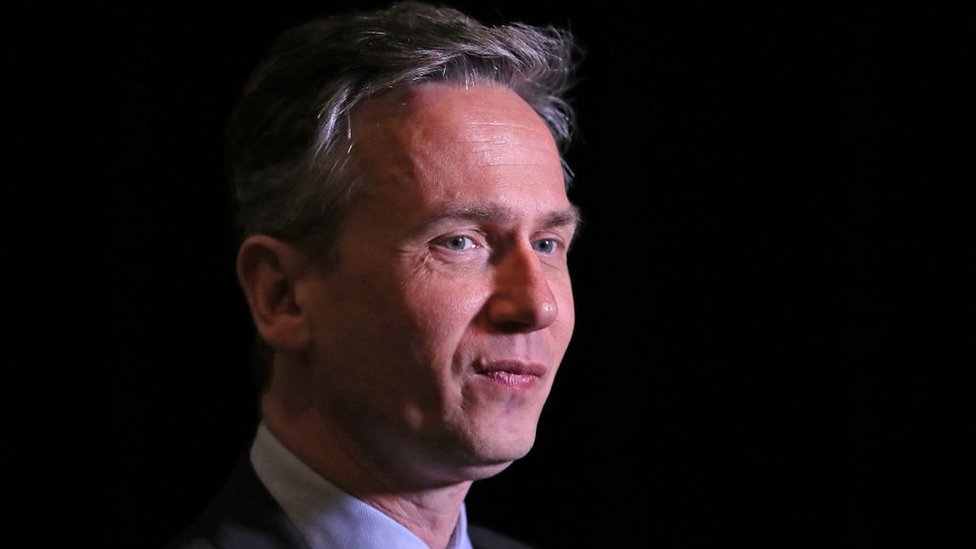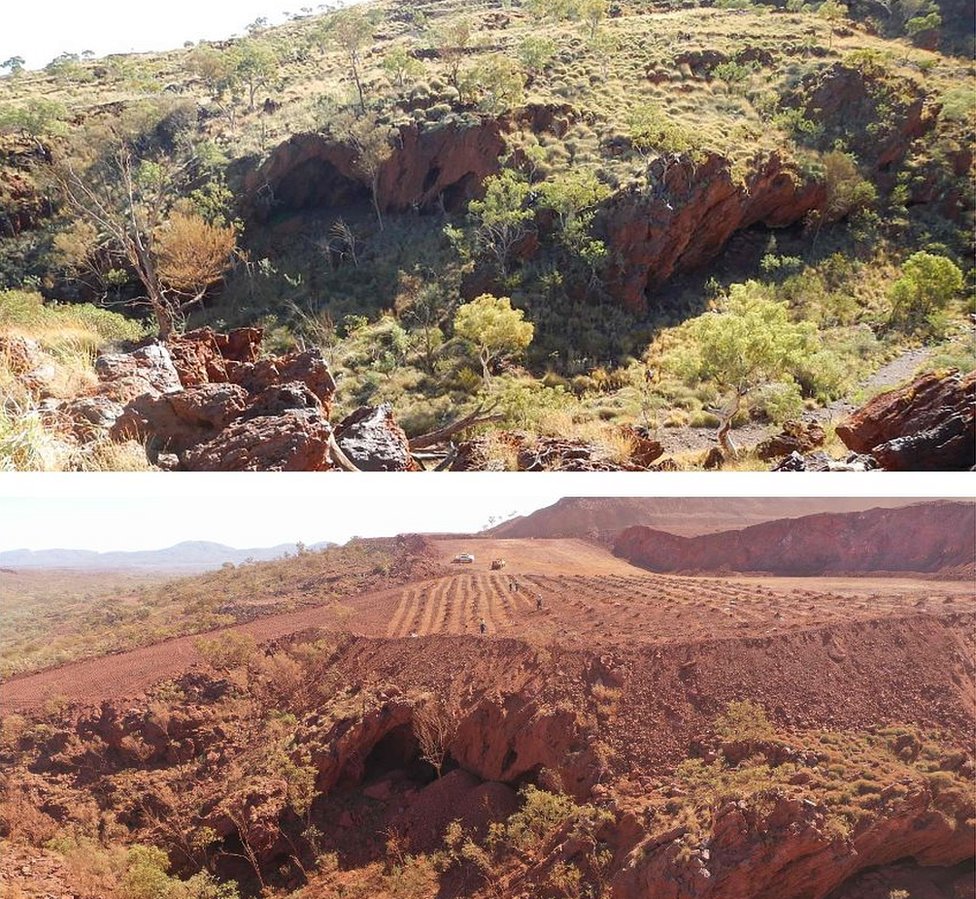
The boss of Rio Tinto, Jean-Sebastien Jacques, will step down following criticism of the mining giant's destruction of sacred Aboriginal sites.
In May, the world's biggest iron ore miner destroyed two ancient caves in Pilbara, Western Australia.
The company went ahead with blowing up the Juukan Gorge rock shelters despite the opposition of Aboriginal traditional owners.
It has sparked widespread condemnation from shareholders and the public.
On Friday, the company said in a statement that "significant stakeholders have expressed concerns about executive accountability for the failings identified".
The board said Mr Jacques would remain as the chief executive until March, or until a successor was appointed.
Other senior executives, including the heads of the miner's iron ore and corporate relations divisions, will also leave the company at the end of the year.
The caves - seen as one of Australia's most significant archaeological research sites - had shown evidence of continuous human habitation dating back 46,000 years.
They sat above about eight million tonnes of high-grade iron ore, with an estimated value of £75m (A$132m; $96m).

Australia's parliament is currently holding an inquiry into the miner's actions.
Rio Tinto also held its own inquiry earlier this year, after which the company cut bonuses for directors and began attempts at repairing relations with Aboriginal communities.
"What happened at Juukan was wrong and we are determined to ensure that the destruction of a heritage site of such exceptional archaeological and cultural significance never occurs again at a Rio Tinto operation," said chairman Simon Thompson.
Artefacts found at the caves include a 28,000-year-old animal bone tool and a 4,000-year-old belt made of plaited human hair. DNA testing had directly linked it to the Puutu Kunti Kurrama and Pinikura (PKKP) people - the traditional owners of the land.
After the caves were destroyed, a PKKP representative, John Ashburton, said losing the site was a "devastating blow".
"There are less than a handful of known Aboriginal sites in Australia that are as old as this one... its importance cannot be underestimated," he said.
Last week it was revealed that in the days running up to the caves' destruction in May, Rio Tinto hired lawyers in case opponents tried to seek injunctions to stop them.
Although the company said it had permission for the work under Aboriginal heritage laws, critics said it suggested the miner was aware of the site's cultural importance.
https://news.google.com/__i/rss/rd/articles/CBMiM2h0dHBzOi8vd3d3LmJiYy5jby51ay9uZXdzL3dvcmxkLWF1c3RyYWxpYS01NDExMjk5MdIBN2h0dHBzOi8vd3d3LmJiYy5jby51ay9uZXdzL2FtcC93b3JsZC1hdXN0cmFsaWEtNTQxMTI5OTE?oc=5
2020-09-11 00:49:00Z
52781055778322
Tidak ada komentar:
Posting Komentar